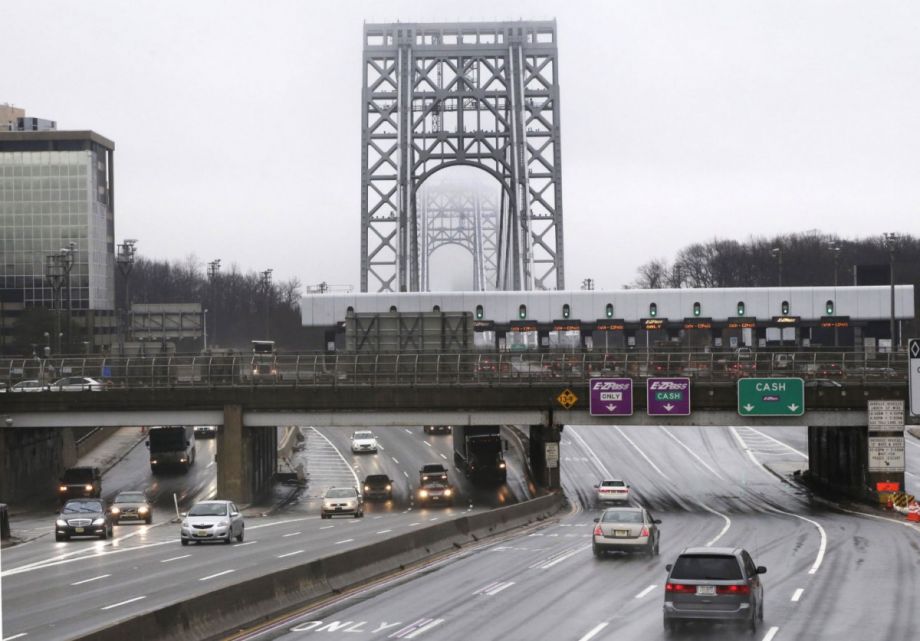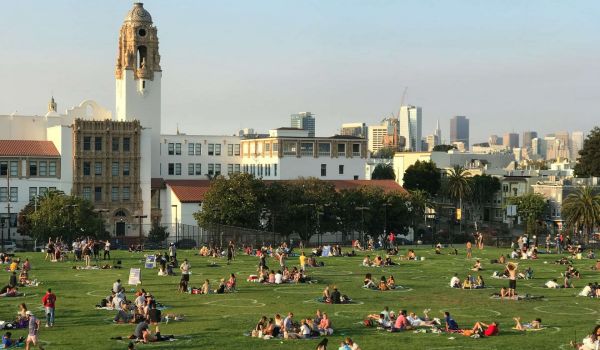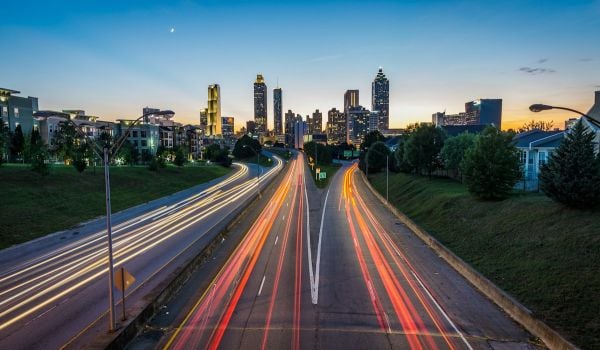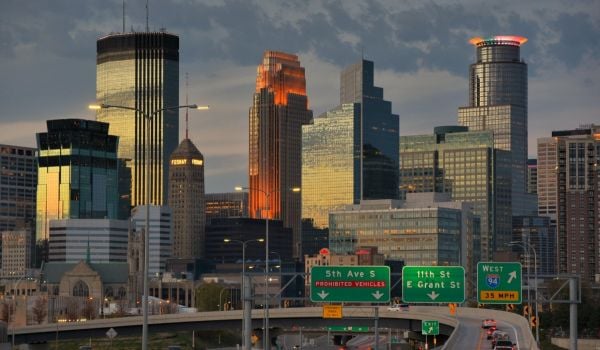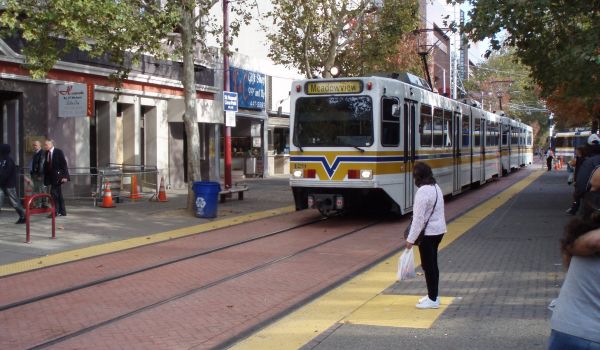In this week’s Forefront story, Dax-Devlon Ross takes a close look at the Port Authority of New York and New Jersey. If you’ve ever wondered why the tolls are so high (and kept on rising) or felt a pinch handing over your cash while driving into New York City, take a look, because Ross gets into all of that.
Ross writes on the authority’s expanse, finances and corruption, and recounts multiple lawsuits demanding audits and calling for the tolls to be scaled back. He speaks to Yoel Weisshaus, a lawyerless, cash-strapped Hasid who took on the Port Authority in court.
I recently talked to Ross about the Port Authority and how things have gotten so, as they say, out of pocket.
Next City: What made you start inquiring about the tolls, the financing and the Port Authority’s multiple projects?
Dax-Devlon Ross: It started as a personal thing. I feel like as someone who lives in the New York and New Jersey area as I have — for the last 12, 13 years, even longer than that — I always encountered this institution but never really understood its scope, its role, how it came to be, why it continues to exist. Back in 2011, when AAA filed its initial lawsuit after the tolls were raised most recently, I became really interested, because AAA is a historically reputable agency that doesn’t get involved with things, at least in my experience, unless it feels like a real injustice to its members is being done. I felt like there’s something there for them to be going through this trouble. I felt like there’s this large institution that continues to operate sort of invisibly, and no one seems to question its existence or why it continues to need more money all the time.
NC: In the piece, you show that it’s not really economically sustainable for a lot of truckers and, if the tolls continue to rise, it might not be economically sustainable for a lot of people. It’s not sustainable for Yoel Weisshaus now. Is that something that you genuinely fear?
Ross: Yeah. It’s funny: Just this morning I got an email from The Nation magazine encouraging me to join their livable wage campaign. An issue of our time is economic inequality. Sure, a lot of folks can afford the tolls because they work in the city and drive in and it’s not a big deal. But if the minimum wage in our area, in our society, is not even $8, and by 2015 the toll to get across will be $15, you’re asking people to pay almost two hours of their daily wage just to cross into the city to go to work.
NC: You did a lot of digging into the history of [the Port Authority], going back to the 1920s. Is there a specific point in the timeline where you think the tide turned? That it stopped being just a bi-state agency that maintained crossings and bridges and became this huge thing that could expand and cross over into so many other things, where it could have airports and all of the things that it maintains?
Ross: Initially, it was designed to help discipline the train system. Because at that time, the trains were all operating independently and it was a mess. But the train company operators and owners were resistant to it, and they had enough power to resist the Port Authority. So the Port Authority then says, “Alright, well, we’ll get into building bridges,” because they at least had the foresight to understand that cars and automobiles were the future. They saw that happening. The initial work, the building of the George Washington Bridge and a couple of their early bridges, it was amazing. They did it well, they did it quickly, and they did it under budget. What I think happened is that they were a victim of their success.
They were successful early on building bridges and the Port Authority bus station. They did take over airports throughout the region, and they had to fight off the great Robert Moses to get JFK, which was called Idlewild Airport at the time. Throughout that time, they were showing that they could get the job done. [Where it takes a turn], I think, is the World Trade Center. So the World Trade Center is an idea initially proposed by David Rockefeller, one of the senior executives at Chase. The Port Authority is chosen — because it’s been financially successful, it’s fairly stable and it’s well run — to manage the development of this project that would nominally be about trade. But it really ended up being just a lot of big office towers. Those office towers, the Twin Towers, they’re built and they’re not financially successful. They’re actually costing a lot of money all through the ’70s and ’80s to continue to maintain. It’s only later in the ’80s and into the ’90s that they actually begin to turn somewhat of a profit, before obviously the disaster of 2001.
The argument a lot of folks make, which I agree with, is that getting into the real estate business was the big, big mistake. When it got into trying to build and manage office towers, then it started to move away from its mission, started to do things that it was never really meant to do, and you start to see a lot more of the governors of New Jersey and New York getting themselves involved, and running it, and trying to manage it, and directing its funds to projects that they want to see get done, and also using the Port Authority as a place to position their political allies.
NC: What do you think is a possible solution for the Port Authority?
Ross: What really needs to happen is that the agency needs to be broken up. I think of Ma Bell: We historically will break up agencies and entities that provide a vital public service, such that restraining all competition and allowing for a monopoly to exist in a particular industry is problematic.
An elected body, at the very least, would challenge folks to engage with the organization to the extent that you would think about who is paying for what and how we can make this institution operate more efficiently. Is it operating as efficiently as it possibly can? And is it operating fairly? Because fundamentally, it is not a fair organization right now. It is not fair that some people have to pay for everything, and some people pay very little, and they’re all using it.

Cassie Owens is a regular contributor to Next City. Her writing has also appeared at CNN.com, Philadelphia City Paper and other publications.
Follow Cassie .(JavaScript must be enabled to view this email address)

